Program Overview
As a component of Cleveland Clinic's Medical Specialty Institute, the Endocrinology, Diabetes, and Metabolism Fellowship Program is accredited by the Accreditation Council for Graduate Medical Education (ACGME). We will give you exceptional training in the field of endocrinology while also supporting the organizational objectives of the patient's first model and drawing from our extensive research experience. Here, you will discover gifted, passionate educators who care about your training and possess the knowledge and experience necessary to help you become an autonomous endocrinology practitioner in a public or private setting.
It is a privilege for our faculties, clinical staff, and entire endocrinology team to collaborate with fellows. By providing you with a curriculum rich in material to suit your specific interests and broaden your knowledge in all areas of endocrinology, the goal is to improve your professional development. In addition to providing you with cutting edge therapies and high standards of care, we hope to encourage you to ask more questions, enhance more aspects of patient care, and discover novel approaches of engaging with intriguing endocrine topics while reaping the rewards of top-notch education.
We are excited to work with you and are confident that you will graduate as a skilled, self-assured, and sympathetic medical professional.
Be a leader in the clinical practice of Endocrinology
Cleveland Clinic's Department of Endocrinology training program is designed to provide you with excellent training in the clinical practice of all endocrinology, diabetes, and metabolic disorders.
Our program is intended to provide fellows with a comprehensive clinical and research education, preparing them for the breadth and intricacy of clinical practice in this amazing subspecialty. It also exposes them to a varied patient population impacted by endocrine disorders. Fellows are exposed to a wide range of thyroid, lipid, bone metabolism, neuroendocrine, reproductive endocrinology, diabetes mellitus, obesity, pituitary, and adrenal problems among other endocrine illnesses.
Learn more about Cleveland Clinic.
Message from the Chief
I am honored to hold the position of Institute Chief in the Medical Specialty Institute. Although our area of medicine is not very new, we underwent a redesign in 2022. As the domains of medicine become more entwined, we are expanding our relationships and collaborations as well as our disciplines.
With the help of this website, we hope you will be better informed about the opportunities we provide for facilitating your education as we investigate possible causes and treatments in the field of endocrinology.
We welcome your inquiries and look forward to working with you.
Bartalome Burguera, MD, PhD
Professor of Medicine. Cleveland Clinic Lerner College of Medicine
Institute Chief, Medical Specialty Institute
How to Apply
Application and contact information
For any questions regarding Endocrinology and Metabolism Institute fellowship programs, please contact Dr. Joni Saab, Residency & Fellowship Administrator, at 216.445.9096, 216.312.0393, or scottj4@ccf.org.
The Association of American Medical Colleges (AAMC) developed ERAS (The Electronic Residency Application Service), to transmit fellowship applications, letters of recommendation, transcripts, and other supporting credentials from applicants and ERAS Fellowships Document Office (EFDO) to fellowship program directors using the Internet in support of the National Resident Match Program (NRMP). We only accept applications that have been submitted through ERAS. Please do not send any application material via fax, mail or email, as it will not be included in your application.
Please note, you must apply through ERAS and register for participation in the match through the NRMP.
NRMP Fellowship Medical Specialties Matching Program (link is external).
Applicants selected for an interview were notified via email. Interviews were scheduled for September 18 and 25, 2024 and October 2 and 9, 2024.
A completed applications must include the following:
- Application
- Picture (not required, but appreciated)
- CV
- Personal statement
- Three (3) Letters of Recommendation, including one from your program director
- Dean's Letter – MSPE
- Medical School Transcript
- USMLE Transcript for MD and COMLEX for DO
- ECFMG Report (if applicable)
Foreign medical graduates will need to have completed a two-year US-based residency program in Internal Medicine prior to joining the fellowship program. Fellowship period begins July 1, 2026.
The goal of this two-year training program is for fellows to acquire the knowledge and skills necessary for providing ethical, humanistic, cost-effective care for patients with endocrine disorders in both the inpatient and ambulatory settings.
The Endocrinology Fellowship Training Program accepts three applicants per year and sponsors J1 and H1b visas.
To comply with the requirements for sub-specialty board certification in endocrinology, metabolism, and diabetes by the American Board of Internal Medicine, applicants must successfully complete three years of residency training in internal medicine before entering the fellowship.
Program Structure
Our Fellowship Program at a Glance
First-year fellow:
- 12 weeks of in-patient service designed in 2 week blocks
- 4 weeks of back-up service designed in 2 week blocks.
- 20 weeks of Continuity Clinic (clinics (3 half-days per week and 2 half-days of administrative time)
- 15 weeks of Specialty Rotations designed in 2-week blocks.
- Week 1: Adrenal/Pituitary
- Week 2: Thyroid/Bone
- Week 3: Diabetes/Obesity
- Week 4: General Endo
- 4 weeks of research time
- 6 weeks of procedures designed in 2-week blocks
- 3 weeks (15 days) of vacation time and five (5) personal days each academic year.
Second-year fellow:
- 6 weeks of in-patient service designed in 2 week blocks.
- 8 weeks of backup service designed in 2 week blocks.
- 22 weeks of Continuity clinics (3-4 half-days per week and 2 half-days of administrative time)
- 10 weeks of Specialty Clinics designed in two-week blocks.
- 12 weeks of research time
- 8 weeks of Procedure service designed in two-week blocks.
- 2 weeks of electives (optional)
- 3 weeks (15 days) of vacation time and five (5) personal days each academic year.
Back-up Rotation
Description of Rotation
Fellows attend 3 half-day morning continuity clinics per week and are the dedicated “back-up” person for the hospital service fellow if help is needed. The backup fellow will cover night calls 2 times per week on Tuesday and Thursday and will cover calls on Sunday. Fellows have one weekend day off (Sunday) per week while on hospital service.
Continuity Clinic Rotations
Description of Rotation
All continuity clinics take place at Cleveland Clinic Main Campus. Fellow’s work with an assigned precepting physician in 4 half-day blocks per week.
All fellows have their endocrine continuity clinic spanning the 2 years of fellowship training. This ensures them the opportunity to follow patients long enough to witness the natural history of the endocrine disorder and its therapy unfold. There is a combination of new patients and follow-up visits. New visits are allocated 60 minutes and follow-up visits are 30 minutes.
The clinic half-day is scheduled from 8:00 AM to noon 2 half-days per week and from 1:00 PM -5:00 PM 1 half-day per week. The fellow is provided 2 half days per week to follow-up on results by phone and address MyChart encounters generated after these visits. This allows for fellow autonomy and accountability.
Electives
Some electives that second-year fellows are able/encouraged to choose from are pediatric endocrinology, nuclear medicine, lipid clinic in preventive cardiology, laboratory medicine, pathology, transgender clinic, reproductive endocrinology, PCOS/women’s health, obesity/medical weight management, and endocrine surgery.
Curriculum
Inpatient rotation
This rotation takes place at Cleveland Clinic Main Campus. The endocrinology hospital consult service involves extensive inpatient exposure to the full spectrum of problems in endocrinology and metabolism including disorders of the thyroid, adrenal, hypothalamus, pituitary, parathyroid glands, endocrine hypertension, metabolic bone and calcium disorders, and type 1 and 2 diabetes mellitus. The educational purpose of this rotation is for the fellow to:
- Gain experience and achieve competency in the care of in-hospital endocrine disorders.
- Gain experience and achieve competency in the treatment and management of acute and chronic endocrine disorders in the hospital setting.
- Perform in a leadership role in organizing the team, receiving consultations, distributing consultations to other team members and supervising students and residents on the service.
During the rotation, fellows will work with an assigned staff endocrinologist and other team members including Internal Medicine residents, medical students visiting residents, observers, and/or nurse practitioners.
The fellow receives consultations, distributes them to team members, maintains list of active consultations, and ensures appropriate hand-over of cases. We work closely with our Diabetes Care Team which is our nurse practitioner team for inpatient diabetes consults. Some examples of consults: diabetes (post-op, transplant, TPN/enteral feeds, islet transplant, post-bypass surgery, insulin pumps); thyroid function abnormalities (thyroid storm, myxedema coma, amiodarone induced thyroid disorders); diabetes insipidus; hyper and hypocalcemia; pheochromocytoma; carcinoid/neuroendocrine; Cushing’s syndrome; adrenal insufficiency; hypoglycemia. The fellow is responsible for the initial evaluation of the patient and development of an initial management plan.
The H&P are presented to the attending staff and feedback is provided to the fellow. The fellow also initially supervises the H&P of the students and residents and does rounds on a daily basis to follow his/her patients. Patient census is usually about 15-25 patients. The hospital fellow takes overnight call from home two nights per week (Monday and Wednesday) and one weekend (Saturday) while on the hospital rotation. Fellows have one weekend day off (Sunday) per week while on hospital service.
Back-up rotation
Fellows attend three to four half-day morning continuity clinics per week and are the dedicated “back-up” person for the hospital service fellow if help is needed. The back-up fellow will cover night calls 2 times per week on Tuesday and Thursday and will cover calls on Sunday. Fellows have one weekend day off (Sunday) per week while on hospital service.
Continuity clinic rotations
All continuity clinics take place at Cleveland Clinic Main Campus. Fellows work with an assigned precepting physician in 3-4 half-day blocks per week.
All fellows have their endocrine continuity clinic spanning the two years of fellowship training. This ensures them the opportunity to follow patients long enough to witness the natural history of the endocrine disorder and its therapy unfold. There is a combination of new patients and follow-up visits. New visits are allocated 60-minutes and follow-up visits are 30 minutes.
The clinic half-day is scheduled from 8 a.m. to noon two half-days per week and from 1 p.m. - 5 p.m. one half-day per week. The fellow is provided two half-days per week to follow up on results by phone and address MyChart encounters generated after these visits. This allows for fellow autonomy and accountability.
Educational purpose
- To gain experience and achieve basic competence in the comprehensive care of endocrine adult patients.
- To gain experience and achieve basic competence in the comprehensive care of adult patients with diabetes
- To ain experience with the treatment and management of acute and chronic endocrine illnesses that are commonly seen in a general endocrine outpatient clinic.
- To assume some of the roles and responsibilities of a general endocrinologist in the outpatient setting.
- To gain familiarity with the longitudinal outpatient clinic and gradually increase the longitudinal clinic patient base.
Subspecialty rotations
Description of Rotation
The program emphasis is on ambulatory sub-specialty training, which reflects the fact that most of the contemporary practice of endocrinology and metabolism occurs in the outpatient setting. During the outpatient rotations, fellows rotate in three to four half-day blocks per week through all sub-specialty teaching clinics (including thyroid, pituitary, adrenal, weight management, calcium, gestational diabetes and more) where they focus on pragmatic and scholarly approaches to diagnostic and therapeutic endocrinology. In all rotations, fellows primarily see new consultations, working one-on-one with a staff endocrinologist who is an expert in that sub-specialty.
Procedures
Fellows are trained in ultrasonography of the thyroid, the post-surgical thyroid bed, cervical lymph node mapping and performing fine needle aspiration. To ensure that all the fellows receive adequate training, a fellow is dedicated to performing all the necessary procedures under direct supervision by an experienced faculty member two half-days per week. By the end of their training, most fellows-in-training would have completed more than 100 ultrasounds of the thyroid and thyroid bed and performed more than 50 FNAs of thyroid nodules and cervical nodes/masses.
Electives
Some electives that fellows are able/encouraged to choose from are pediatric endocrinology, nuclear medicine, lipid clinic in preventive cardiology, laboratory medicine, pathology, reproductive endocrinology, PCOS/women’s health, obesity/medical weight management, and endocrine surgery.
Educational Activities
Educational activities
There are several regularly scheduled educational activities in the department for fellows:
- Core curriculum lectures
- Case presentations
- Endocrine grand rounds
- Monthly pituitary tumor board
- Monthly adrenal/Neuroendocrine tumor board
- Monthly thyroid tumor board
- Monthly calcium tumor board
- Board questions sessions
- Wednesday didactic sessions
- Journal club
- Research meeting
- Quality Assurance
Weekly endocrine grand rounds (EGR)
The Wednesday morning Endocrine Grand Rounds is attended by faculty, fellows, and providers from other specialties, house staff, rotators, and visiting scientists beginning at 7:00 AM in-person.
The topics discussed at this conference are clinically relevant, but may include newer developments in the basic sciences, which are of increasing importance to a clinician. The fellows have an opportunity to present interesting cases they have seen and discuss a related area of diagnosis or therapy. Research protocols and results are discussed as well.
Journal club
Journal Club follows Endocrine Grand Rounds every Wednesday. Each week, fellows gather to discuss a group of recent articles they believe are of relevance. Often, this conference allows the opportunity to compare the content of the literature with "what we really do." The focus is very clinical, and the goal is to stay updated on a broad range of topics. Fellows often cover articles in depth. A core curriculum lecture is given by a faculty member following EGR.
Didactic lectures
These lectures are part of the Wednesday morning conference series. Lectures are given by endocrine faculty and/or invited speakers. Additional lecture topics are added as deemed appropriate by the faculty. Examples of such topics are:
- Insulin: synthesis, regulation, and molecular mechanism of action
- Developmental endocrinology (growth and development, sexual differentiation, pubertal maturation)
- Genetics (selected endocrine disorders)
- Principles of hormone action and signal transduction pathways
- Creation, validation, and use of laboratory assays
- Immunology of endocrine disorders
- Pathogenesis of diabetes mellitus and insulin resistance
- Pancreas transplantation
- Non-genomic actions of steroid hormones
- Radionuclide scanning and Radiation Safety
- Thyroid ultrasound day
- Reproductive endocrinology
- Pregnancy and endocrine disorders
- Obesity medicine
- Pituitary disorders (pituitary adenomas, interpreting pituitary MRI)
- Dynamic endocrine testing
- Adrenal disorders (primary hyperaldosteronism, adrenal Cushing’s, adrenal nodules)
- Neuroendocrine disorders
- Financial planning
- Billing and coding
Fellows also attend the Annual AACE/Cleveland Clinic Endocrine Board Review Course, the Annual Cleveland Clinic Adrenal, Diabetes, Pituitary and Thyroid courses, if not working on Hospital Service.
Annual endocrinology board review course
The American Association of Clinical Endocrinology/Cleveland Clinic Endocrinology Board Review Course is directed to practicing endocrinologists and other physicians with an interest in endocrinology, metabolism and diabetes. The goal of this course is to provide the participants an intensive preparation for the endocrinology and metabolism board examination. Topics covered during the Endocrine Board Review are:
- Calcium disorders
- Endocrinology, including diabetes control and complications
- Endocrine hypertension
- Endocrine pathology
- Genetics
- Hypo- and hyperadrenalism
- Hypogonadism
- Nephrolithiasis
- Nuclear imaging
- Pediatric endocrine disorders and pregnancy
- Pituitary disorders
- Osteoporosis
- Thyroid disorders
- Transplantation
The lecture format will be heavily weighted to board simulation. An interactive Audience Response System is employed to facilitate audience participation. A comprehensive syllabus will be provided. All fellows in training are given the opportunity to attend.
Annual Diabetes Day
A course designed to summarize and present the latest knowledge in the management of diabetes to busy practitioners. Areas recently covered during Diabetes Day conference include:
- Combination therapy
- Treatment in hospital setting
- Management and prevention of complications
- Peculiarities in various populations and adolescents
- Newer as well as future management options
Pituitary Day
This is a one-day symposium with a different theme each year that provides an overview of innovations and advances in the field of pituitary disease including evaluation, diagnosis, treatment and prevention. It includes didactics and case-based talks and panel discussions by experts in the field.
Thyroid Day
This is a one-day course presented by the Cleveland Clinic Endocrinology and Metabolism Institute that provides up-to-date reviews in the management of thyroid diseases. It includes didactics and case-based talks and panel discussions by experts in the field.
Research training
Research is a significant part of the training of an endocrinologist. Fellows are provided with 16weeks to pursue research in the 2 years of fellowship with an expectation to have at least one scholarly article published in a peer-reviewed journal during their program for graduation. All fellows present at national endocrine meetings.
Each trainee meets with the program director, associate program director and our research director during his or her first year to discuss research opportunities and is assigned an appropriate mentor. Our fellows are provided the time and support needed to complete projects leading to first authorship; thereby, meeting the requirement to attend and National meetings. All endocrinology fellows are required to take the Investigator Human Subject Research Education course offered by Cleveland Clinic in addition to CITI and HIPAA, online education courses.
Educational purpose
- Gain experience in gathering data for a research project.
- Gain experience in designing research project
- Write an abstract for local or national meetings and present his/her work at local or national meetings
- Gain experience in preparing manuscript for publication.
By the end of the rotation, the resident should receive and/or complete the following assessments:
Expectations
During this rotation, fellows are expected to work independently during their research blocks.
The fellows meet with mentors on the research projects at least once monthly. The fellow meets with the program director every one to three months to monitor progress and help them to be successful in their research projects.
The orientation program director provides general information at the beginning of the fellowship program and in intervals when meets with the fellows. Research mentors would further elaborate on job expectations for each research project.
Research fellowship group compose with PD, APD and a faculty will follow and evaluate the progression of research of the fellow every semester.
Fellows are supervised by the research mentors and the program director.
The patient mix includes adult patients with diseases associated with research study.
Teaching Opportunities
Our fellows are frequently involved in teaching residents, medical students, observers, and rotators. In addition to teaching rotators on the hospital service and giving scheduled lectures to the internal medicine residents, endocrine fellows are expected to give resident didactics every other Thursday while on the STJ rotation. Furthermore, there are several teaching opportunities through GME whereby fellows can become clinical instructors for the Cleveland Clinic Lerner College of Medicine (CCLCM), among other educational programs.
Fellows who are interested in cultivating a career as a Clinical Educator can enroll in the Education Track for the Cleveland Clinic Endocrinology Fellowship program. This program assists fellows who are interested in a career focused on medical education to develop excellence in teaching.
Objectives
- Training in the science and principles of medical education
- Development of effective didactic and clinical teaching skills
- Development of skills in developing and implementing curriculum and methods of assessment
- Facilitate scholarship in medication education.
- To provide opportunities for mentorship with staff who have developed their careers within medical education.
Where we train
We train at our Main Campus location, Stephanie Tubbs Jones Health Center (STJ), and Richard E. Jacobs Health Center in Avon.
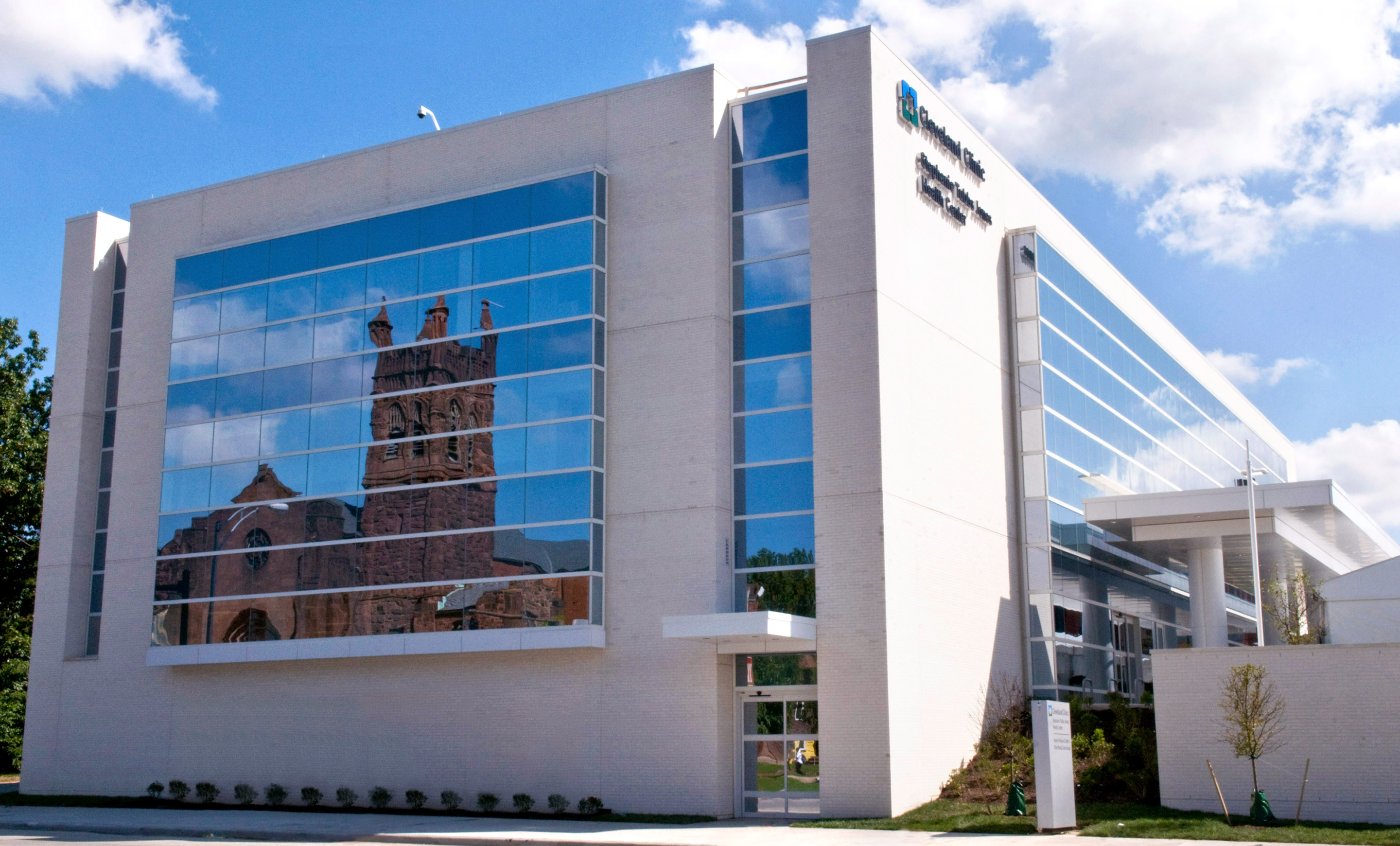
Stephanie Tubbs Jones Health Center
Our training at the STJ Center is focused on the treatment of diabetes, hypertension, kidney failure, mental health, specialized care for women and children, primary care, preventive care, health education and specialty care.
Our staff includes primary care physicians and specialists who see patients in East Cleveland. Through this center, we’re creating an easier way for patients to receive preventive care and treatment for chronic diseases.
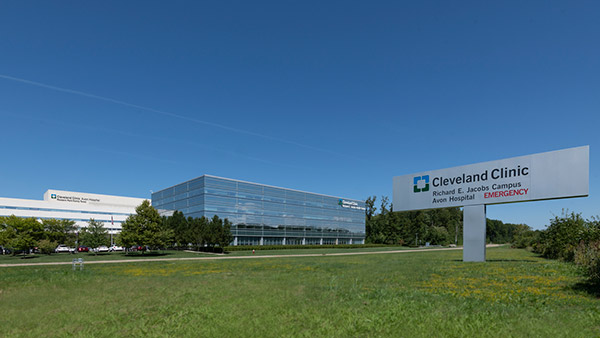
Richard E. Jacobs Health Center
Training at Richard E. Jacobs focuses on gestational diabetes under the direction of Dr. Kevin Borst, MD, who will provide you with world-class training alongside our experienced medical staff. The Department of Endocrinology, Diabetes and Metabolism manages specialized centers of care for patients with diabetes, thyroid disorders, and pituitary disorders. Collaboration among endocrinologists, endocrine surgeons, and bariatric surgeons and physicians allows fellows to work with a multidisciplinary team, providing personalized training plans leading to the best possible patient care.
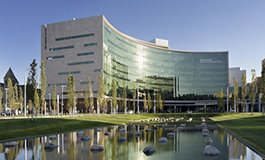
Cleveland Clinic Main Campus is one of the country's largest and most respected academic medical centers. It provides comprehensive diagnoses and treatment with the highest level of patient care.
Cleveland Clinic specializes in all fields of study. With over 1,400 beds on-site and over 3,600 physicians, scientists, and researchers, Cleveland Clinic is a pioneer and innovator in today's medicine. Patients travel from all around the globe to the main campus for treatment, research, lectures, education, and the best medical care in the nation. We are looking forward to having you become part of our team.
Salary and Benefits
As a trainee, you are compensated at the graduate level required to enter our program in which you are starting, regardless of the past training experience you may have acquired. Our first-year fellows are appointed at a PGY-4 level and second-year fellows are appointed at a PGY-5 level.
Trainees are paid via direct deposit on the 15th and the last working day of the month.
Paid Time Off: 15 Vacation days, five personal days, six-week caregiver leave, eight weeks paid maternity and four weeks parental leave.
We are a smoke and drug free workplace and have random drug screenings. We require yearly flu vaccinations, and follow the Center for Disease Control for Covid vaccination practices.
View the current Salary and Benefit Policy,which outlines our equal pay/equal benefits policy for trainees, as well as the new Salary and Benefit Policy, on the GME policy page.
Staff
Meet our program leadership
Our division has opportunities for advanced subspecialty training in our Endocrinology, Diabetes, and Metabolism Fellowship, accredited through the Council for Graduate Medical Education (ACGME) as part of the Cleveland Clinic and the Lerner College of Medicine Department is led by:
Ricardo Correa, MD, EdD
Program Director, Endocrinology Fellowship
216.445.5246
correar@ccf.org
Mona Gossmann, MD
Associate Program Director, Endocrinology Fellowship
216.504.0001 ext. 3
gossmam@ccf.org
Carmen Polanco-Santos, MD
Associate Program Director, Endocrinology Fellowship
330.896.5077
polancc@ccf.org
Kathy Zhou, MD
Research Director, Endocrinology Fellowship
216.445.3757
zhouk@ccf.org
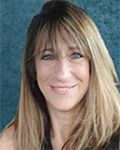
Joni Saab, DBA
Program Administrator
Endocrinology, Surgery, and Obesity Fellowships
216.312.0393
scottj4@ccf.org
Meet our faculty
Cleveland Clinic's staff endocrinologists serve as teachers and mentors. Their various clinical and academic backgrounds result in an exceptional depth and breadth of clinical expertise and research opportunities for our fellows who are fully integrated into all aspects of our academically rich program.
Our faculty have a wide range of research interests that cross the entire spectrum of endocrinology. Details of their academic and clinical interests can be found by clicking on the faculty member's name for more information.
- Ula Abed Alwahab, MD
- Lina Alkhaled, MD
- Kevin Borst, DO
- Maria Caramori, MD
- Lea El Hage, MD
- Marcio Griebeler, MD
- Sana Hasan, DO
- Hasan Husni, MD
- Christine Hoscheit, MD
- Anira Iqbal, MD
- Leila Khan, MD
- Ossama Lashin, MD, PhD
- Oscar Morey-Vargas, MD
- Kevin Pantalone, DO
- Sabashini Ramchand, MBBS
- Paloma Rodriguez, MD
- Pratibha Rao, MD
- Mario Skugor, MD
- Divya Yogi-Morren, MD
- Rong Zhang MD
- Robert Zimmerman, MD
Our faculty, clinical staff, and all Division of Endocrinology personnel consider it a privilege to work with fellows, and will work to enhance your professional development, tailoring the program to meet your interests while also deepening your knowledge in all areas of endocrinology. We want to inspire you to ask more questions, improve more areas of patient care to match standards of care and newly available treatments, and explore new ways to research interesting endocrine issues while getting a top-notch education.
Current Fellows
Meet our first year fellows
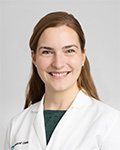
Kendra Lynn Frey, MD
- Medical Education: University of Iowa Carver College of Medicine (MD), University
- Residency: Cleveland Medical Center (Internal Medicine/Chief Resident)
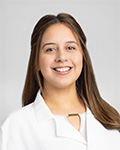
Natalia Elizabeth Fretes Oviedo, MD
- Medical Education: Universidad Católica Nuestra Señora de la Asunción
- Residency: Central Michigan University
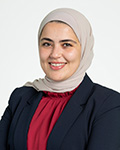
Farah Basel Nimer Ziyadeh, MD
- Medical Education: University of Jordan, Amman, Jordan
- Residency: Cleveland Clinic
Meet our second year fellows
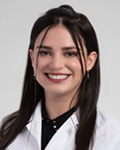
Gloriana Madrigal Loria, MD
- Medical Education: Universidad de Ciencias Médicas, UCIMED
- Residency: St. Barnabas Hospital Bronx, NY
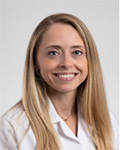
Juliana Ferri-Guerra, MD
- Medical Education: Pontificia Universidade Catolica do Rio Grande do Sul
- Residency: Mount Sinai Medical Center
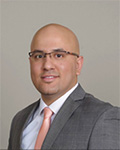
Osamah Abdulameer Abdulhussein, MD
- Medical Education: University of Baghdad College of Medicine
- Residency: Capital Health System, Trenton/Hopewell, NJ
Alumni
EMI Clinical Fellows 2020 – 2022
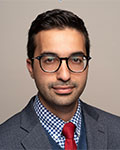
Saif Borgan, MD
- Residency: University of Central Florida - College of Medicine, Orlando, FL
- Medical Education: Royal College of Surgeons in Ireland - Medical University of Bahrain
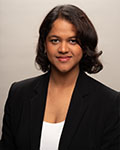
Alimitha Kodali, MD
- Residency: Jacobi Medical Center – Albert Einstein College of Medicine, Bronx, NY
- Medical Education: Jawaharlal Nehru Medical College, Belgaum, India
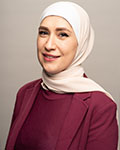
Noura Nachawi, MD
- Residency: Saint Joseph Mercy Hospital, Ann Arbor, MI
- Medical Education: University of Damascus Faculty of Medicine Syrian Arab Republic
EMI Clinical Fellows 2021 – 2023
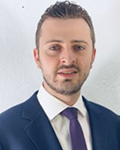
Khaled AlSibai, MD
- Residency: Alfaisal University College of Medicine in Saudi Arabia
- Medical Education: St. Elizabeth Medical Center
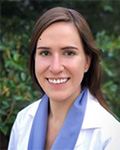
Michelle Lundholm, MD
- Residency: Loyola University Medical Center, Maywood, IL
- Medical Education: Northwestern Feinberg School of Medicine, Chicago, IL
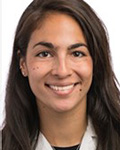
Lily Tranchito, DO
- Residency: Case Western Reserve University/University Hospitals, Cleveland, OH
- Medical Education: Ohio University Heritage College of Osteopathic Medicine
2022 – 2024 Fellows
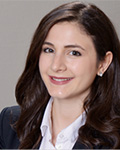
Kenda Alkwalli, MD
- Residency: University of Connecticut Farmington, Connecticut
- Medical Education: University of Damascus Faculty of Medicine
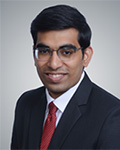
Jayachidambaram Ambalavanan, MD
- Residency: Medstar Georgetown, Washington Hospital Center
- Medical Education: Kasturba Medical College, Mangalore, India
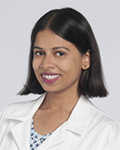
Anira Iqbal, MD
- Residency: Cleveland Clinic
- Medical Education: Chirayu Medical College & Hospital, Bhopal, M.P., India